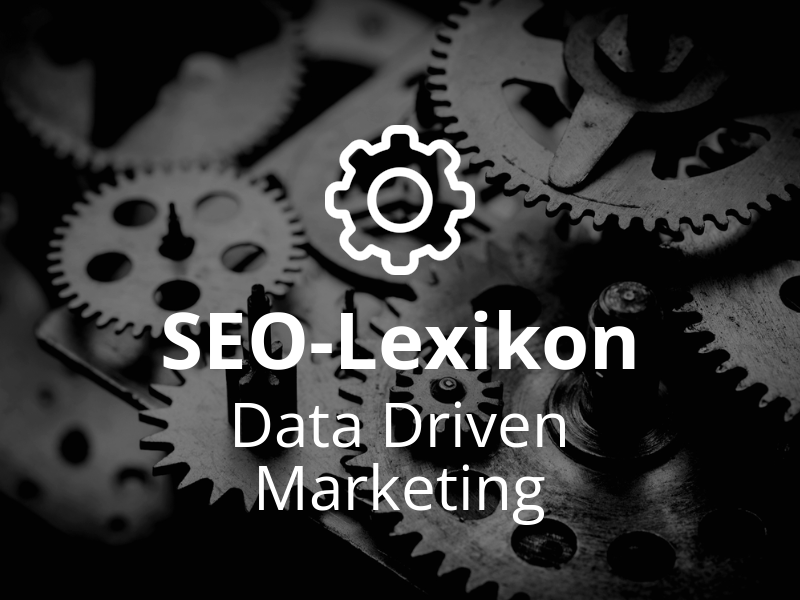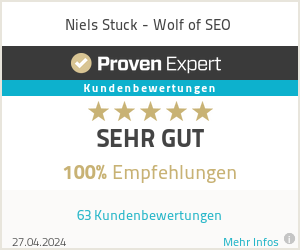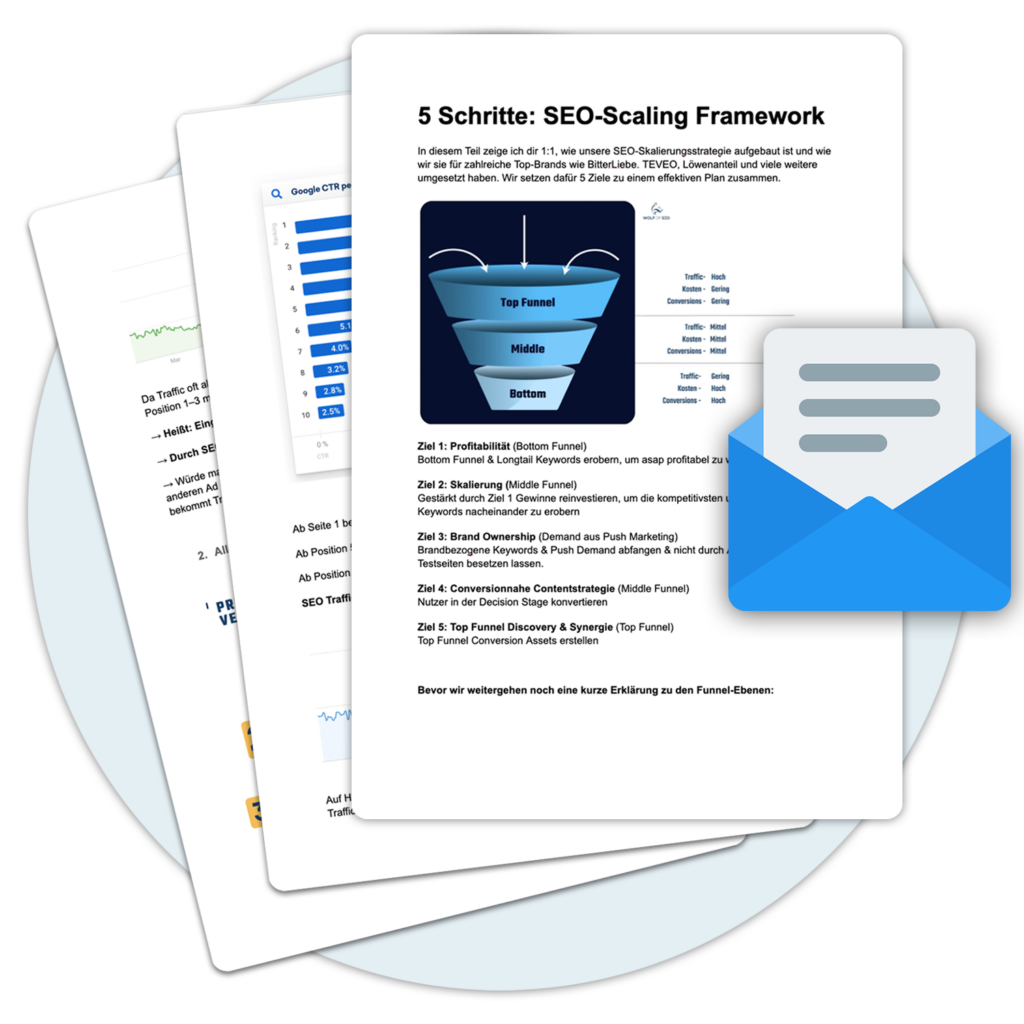What is data-driven marketing?
Data Driven Marketing refers to the collection, analysis and use of data for strategic marketing decisions. All aspects of marketing, from customer acquisition to customer retention and increasing customer satisfaction, benefit from data-driven approaches. By using generated data, marketing campaigns become more targeted, personalized and often automated.
Strategic decisions and campaigns
A central Advantage of the Data Driven Marketing is the sound basis for decisions. By analyzing data, companies can develop a better understanding of user behaviour. These insights enable the creation of personalized content that is tailored to the needs and preferences of the target groups.
Data-driven marketing decisions contribute to the measurability of corporate goals. By developing campaigns based on data, companies can better monitor and evaluate their impact. A key component is the rapid generation of insights that lead to smart decisions. This approach also allows for quick course corrections after a campaign has been launched.
Through Predictive Analytics future trends and behavioral patterns can also be predicted. This makes it possible to react proactively to changes and continuously optimize marketing strategies.
Process automation and integration
Another important aspect of the Data Driven Marketing is process automation. Automated data integration and standardization are crucial to avoid delays in decision making and suboptimal budget investments. This leads to efficient use of the collected marketing data and a better overall view.
Technological requirements play an important role here. The integration and linking of all marketing data in a standardized system is necessary to ensure a consistent and holistic view of the customer. Machine learning and various MarTech solutions are used to facilitate the connection of new data sources.
Goals and challenges of data-driven marketing
The primary Goals of the Data Driven Marketing are to improve the effectiveness and efficiency of marketing activities. Well-founded decisions based on detailed data analysis enable a better understanding of user behaviour, which leads to the creation of highly personalized content. This allows marketing to be more targeted and effective, helping to maximize return on investment (ROI) in the long term.
Optimization of marketing efficiency
A key objective is to maximize marketing efficiency. This is achieved by collecting data at all Touchpoints of the customer journey can be collected and evaluated. The linking of customer information collected online and offline plays a decisive role here. Through the use of predictive Analytics companies can not only recognize current trends, but also anticipate future developments and react accordingly.
The Challenges in the Data Driven Marketing are manifold and include, in particular, data quality, data protection, the management of large volumes of data and the provision of the necessary resources. High data quality is essential in order to be able to carry out reliable and meaningful analyses. Data protection regulations, such as the GDPR, also require strict compliance measures to protect the privacy and rights of customers.
Managing and analyzing large amounts of data presents additional challenges that can only be overcome by using modern technology and efficient processes. Resource constraints, both in terms of skilled personnel and financial resources, can also be a limiting factor. It is therefore important that companies invest in the right tools and technologies to take advantage of the Data Driven Marketing to be able to fully exploit the potential.
Technological requirements and integration
The technological basis for Data Driven Marketing encompasses a wide range of systems and technologies. In practice, there are over 7000 MarTech solutions that are used to implement data-driven marketing strategies. These include customer relationship management systems (CRM), data management platforms (DMP) and marketing automation tools. These technologies enable the efficient collection, storage, analysis and use of large volumes of data.
Integration and data linking
A crucial component is the integration and linking of all marketing data. In view of the large number of data sources and formats, it must be ensured that all data can be merged and analyzed in a uniform structure. This requires flexible and powerful systems that make it easy to connect new data sources.
The use of Machine Learning and other advanced analytics solutions play a key role here. By using such technologies, companies can not only analyze historical data, but also predict future trends and behaviors. Another important aspect is the linking of web controlling with the various communication channels in order to obtain a holistic view of the effectiveness of marketing measures.
Automating processes for data integration and standardization helps to avoid delays and make decisions based on solid data. This also includes the automated analysis and visualization of data to reveal immediate insights and optimization opportunities. Thanks to these technical requirements, marketers can invest their budgets more efficiently and continuously improve results.
Best practices for data-driven marketing
Best practices in Data Driven Marketing are crucial in order to derive the full benefit from data-based strategies. Correct data quality is fundamental to this. Precise analyses and well-founded decisions can only be made with clean and reliable data. Companies should implement a comprehensive data quality management system that provides for regular checks and updates of data sets.
Target group segmentation and personalization
Another best practice is target group segmentation. By dividing customers into smaller, homogeneous groups, targeted and relevant marketing campaigns can be created that better address the specific needs and interests of the respective segments. This leads to higher customer loyalty and a better conversion rate.
The development of personalized content is also of great importance. This content should be based on the individual preferences and behavioral patterns of customers and offered in a tailored manner. Both historical data and real-time information can be used to address customers precisely at every stage of their journey.
Continuous monitoring and optimization of campaigns through KPIs and analyses are another important component. With the right key figures, the performance and ROI of each campaign can be measured and evaluated. Based on these findings, ongoing campaigns can be adjusted and optimized in real time to achieve the best possible results.
Strict compliance with data protection policies and practices is essential to gain and maintain customer trust. Companies should ensure that the processing of personal data complies with legal requirements and is communicated transparently.
Components and utilization strategies
The basic Components of the Data Driven Marketing include data collection, data aggregation, data analysis, utilization and evaluation. Each of these components plays a crucial role in the implementation of successful data-driven marketing strategies. During data collection, information is collected from various sources such as CRM systems, webAnalyticssocial media and transaction data. This data is then merged to create a unified view of the customer.
Data analysis and use
Data analysis is the next important step, where patterns, trends and target groups are identified. Advanced analysis techniques and machine learning are often used here to provide deeper insights and predictions. The insights gained from this serve as the basis for the development of personalized campaigns and content. These campaigns should be specifically tailored to the needs and preferences of the various customer segments in order to achieve a high level of customer satisfaction. Relevance and effectiveness.
The evaluation and monitoring of measures based on data is also of great importance. Through continuous monitoring, companies can track the performance of their campaigns in real time and make adjustments if necessary. This enables iterative optimization and ensures that marketing activities are always up to date and optimally aligned.
The usage strategies include the targeted addressing of target groups through segmented and personalized communication, the integration of predictive analytics to forecast customer behaviour and the automation of marketing processes. These strategies help companies to act more efficiently and effectively and achieve their marketing goals faster and in a more targeted manner.
By combining and applying these components and strategies correctly, companies can not only maximize their marketing performance, but also gain valuable insights into their customers' behaviour and preferences. This enables them to constantly adapt and improve their marketing measures, which leads to higher sales and greater customer loyalty in the long term.
Role of analysis and reporting tools
The Analysis and reporting tools play a central role in the Data Driven Marketing and form the backbone for data-based decision-making. These tools enable companies to record user behavior, evaluate the performance of campaigns and generate valuable key performance indicators (KPIs). The analysis and visualization of the collected data provides crucial insights that serve as the basis for optimizations and strategic adjustments.
Web analytics and social media tools
Common tools include web controlling tools that record and analyze user behavior on websites. Key KPIs such as websiteTrafficpage views and dwell time are monitored in order to evaluate the effectiveness of the website and the campaigns based on it. In addition, social media analysis tools are used to measure interactions, mentions and shares. These tools record the tonality of the posts and provide information about the perception and response of the target group in social networks.
Marketing automation tools also play a crucial role by supporting the planning and analysis of personalized marketing campaigns based on user behaviour. These technologies make it possible to process large amounts of data efficiently and react to changes in customer behavior in real time. By integrating these tools into existing CRM systems, a comprehensive picture of the customer is created, which facilitates the automation and personalization of marketing measures.
Provision and use of data
An important aspect is the provision of analysis and reporting tools within a company. It is crucial that these tools are seamlessly integrated into the existing IT infrastructure to ensure smooth data processing and analysis. The resulting insights must be prepared and presented in an understandable way so that they can be used by all relevant departments. This promotes a data-based culture within the company, in which well-founded decisions are made on the basis of up-to-date and reliable data.
The continuous monitoring and adjustment of marketing measures using these tools makes a significant contribution to increasing efficiency and achieving objectives. By systematically evaluating and using the collected data, companies can continuously optimize their marketing strategies and react more quickly to market changes. In summary, it can be said that analysis and reporting tools are indispensable tools in modern data-driven marketing that contribute significantly to the success of campaigns and the achievement of corporate goals.
Customer relationship management and automation
Customer relationship management (CRM) and automation play an important role in the Data Driven Marketing a central role. CRM systems record and store all relevant customer data in a central database. This information includes personal data, purchase history, interactions and preferences. By integrating marketing automation tools with these CRM systems, companies can significantly optimize their marketing measures.
Efficiency through automation
Automation technologies take over many of the routine marketing tasks that were previously performed manually. These include segmenting target groups, creating and sending personalized emails, running social media campaigns and managing lead nurturing programs. Automating these processes not only saves time and effort, but also increases the precision and consistency of marketing activities.
Another advantage of automation in conjunction with CRM systems is the ability to track customers throughout their entire lifecycle. Customer Journey individually. Interactions can be tracked and evaluated seamlessly across different channels, creating a holistic view of the customer. Based on this data, personalized campaigns can be triggered and optimized in real time, leading to greater customer loyalty and retention.
In addition, automated processes enable better resource planning and budget management. By continuously analyzing and reporting on the success of campaigns, companies can react flexibly to changes in the market and adapt their strategies accordingly. This ensures efficient use of available resources and maximizes the return on investment (ROI).
Overall, the combination of CRM and automation promotes a data-driven marketing culture that enables companies to rely on sound insights and continuously improve their marketing strategies. By seamlessly integrating and utilizing these technologies, companies can work more efficiently and be more successful in the market in the long term.
Benefits and advantages of data-driven marketing
Data Driven Marketing offers numerous advantages that contribute significantly to the optimization and effectiveness of marketing strategies. By analyzing and using customer data in detail, companies can better target and adapt their marketing measures. This leads to a higher Relevance campaigns and ultimately to increased customer satisfaction.
Personalization and efficiency
A key benefit is the ability to develop highly personalized campaigns. Detailed customer profiles obtained through the analysis of behavioral and preference data can be used to create tailored content. This personalized content appeals specifically to customers and significantly increases the likelihood of a positive response.
In addition Data Driven Marketing contribute to the optimization of marketing expenditure. By precisely measuring and analyzing the effectiveness of various measures, budgets can be used more efficiently. This minimizes waste and maximizes the return on investment (ROI). Data-based decision-making makes it possible to make quick adjustments and continuously increase the success of campaigns.
Valuable insights and competitive advantages
By using data, companies gain valuable insights into the behavior and preferences of their customers. These insights enable better segmentation and targeting of target groups. Companies that develop a comprehensive understanding of their customers can use innovative, data-driven approaches to set themselves apart from the competition and gain a competitive advantage. erlangen.
It also improves Data Driven Marketing the ability to recognize trends and patterns at an early stage and react to them. Predictive analytics helps to predict future developments and take proactive measures. This not only ensures better preparation for market changes, but also a sustainable increase in company performance.
Ultimately, the strategic use of Data Driven Marketing to higher sales and greater customer loyalty. By regularly using and updating data, companies can create user-oriented offers and continuously optimize their marketing strategies. The flexibility and adaptability that data-driven marketing offers is a decisive success factor in today's dynamic market situation.
« Back to Glossary Index






